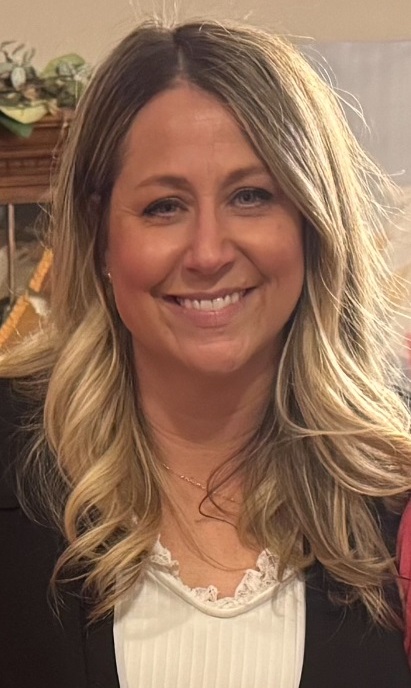Creating Balance and Improving Quality of Life
November 25, 2024

You’ve not been feeling yourself, and you visit your doctor, who runs some bloodwork. After consulting with you on your lifestyle and diet, and running further bloodwork, you learn that you have diabetes. What happens next can determine a lot. Amanda Ast, RD, the Diabetes Education Program Coordinator at NWTHS, shares her insight on best practices in managing the many aspects of diabetes, including everything from nutrition and balance, to improving the quality of your life.
A person with diabetes experiences the stages of grief around their diagnosis or the changes brought about by the disease. The role of a diabetes educator/dietitian includes educating the patient on the acceptance of their diagnosis. Even with the best education, resources, and support, a patient may have a hard time moving forward if they have not learned to accept their diagnosis.
Educating the patient
Working in diabetes education for the past 20 years, I have heard numerous restrictive strategies on managing what to eat for those with diabetes, such as cutting carbs and sugar, eliminating white foods, and removing carbs completely. In stark contrast, the focus of education is on how to obtain a variety and adequate portions – not to remove foods from the plate but to make room for others. Food balance is achieved with individualized approaches that take into consideration the patient’s possible dietary imbalances and cultural preferences. The ultimate goal of diabetes management is to improve quality and length of life.
No two people are the same, thus no two people will have the same daily routines with food, movement, or diabetes management. The role of the diabetes educator and dietitian is to create a patient-driven, individualized approach to diabetes self-management. This includes teaching skills of healthy coping, healthy eating, being active, medications and monitoring, and problem-solving to reduce risks in their life with diabetes.
Learning new skills
- Healthy Coping teaches a patient how to listen to their body. This step is crucial in first identifying the stage of grief and acceptance of their diagnosis. Secondly, it teaches a patient to find the connection between lifestyle choices and the daily management of diabetes.
- Healthy Eating relies on a solid foundation of understanding the role and the function of food in the body. Demonstrating the journey of food in the body offers a visual for the patient to understand the impact of food, medications, and movement in their body. This foundation of nutrition knowledge allows the patient to discern misinformation.
- Being Active helps a patient understand the benefit of movement and connects the relationship of movement with improved quality of life.
- Monitoring and Medication Education is best when individualized to the patient’s needs. Simple explanations on the purpose and function of medication improve acceptance and compliance with these tools to manage diabetes. This education also exposes patients to advancements now available to promote their quality of life.
- Problem Solving and Reducing Risks teaches a person how to navigate daily management of diabetes with a long- term goal of preventing complications. Reminding patients of the problem-solving already in place in their daily lives can provide a connection to mindfulness as the patient moves forward with diabetes management.
An educator best provides care to patients by implementing these steps into several modes of learning. The use of tactile learning, visual aids and practice improves understanding, which increases quality of life with reduced risks. In addition to instruction, offering patients the opportunity to express their concerns allows the patient to identify where they might be in acceptance of their diagnosis.
As patients receive diabetes self-management education, they are learning how to fish versus receiving a plate of fish. This educational process promotes independence in their own care. Meeting a patient where they are on their journey of acceptance allows proper education to meet their individual needs. Explaining complex medical terms, diagnoses, and medications allows a patient to understand the importance of caring for themselves.
Amanda Ast is currently the Diabetes Education Program Coordinator at NWTHS in Amarillo, TX. She has practiced as a dietitian and diabetes educator throughout the Texas Panhandle since 2005. Her passion for helping people manage diabetes stems from her own diagnosis with type 1 diabetes as a teen. She also specializes in eating disorder recovery/care. She loves spending time with her husband and three children.
Bibliography:
- Beaser R. Joslin’s Diabetes Deskbook. Boston (MA): Wolters Kluwer Health; 2007:25-41,81-123,159-166,385-402.
- Funnell M, Kloss K, Nwankwo R. Life with diabetes, 6th ed. Arlington (VA): American Diabetes Association; 2020.
- Poretsky L. Principles of Diabetes Mellitus, 3rd ed. New York: Springer Cham, 2017:3-19,843-856.
- Riddle, M. Standards of Medical Care in Diabetes 2022. Diabetes Care.2022.
- Shamoon H, et al. Diabetes Control and Complications Trial Research Group: The effect of intensive treatment of diabetes on the development and progression of long-term complications in insulin-dependent diabetes mellitus. N Engl J Med. 1993;329:977–986.
- Resch E, Tribole E. Intuitive Eating, 4th Ed. New York: St Martins; 45, 104- 109, 359.
